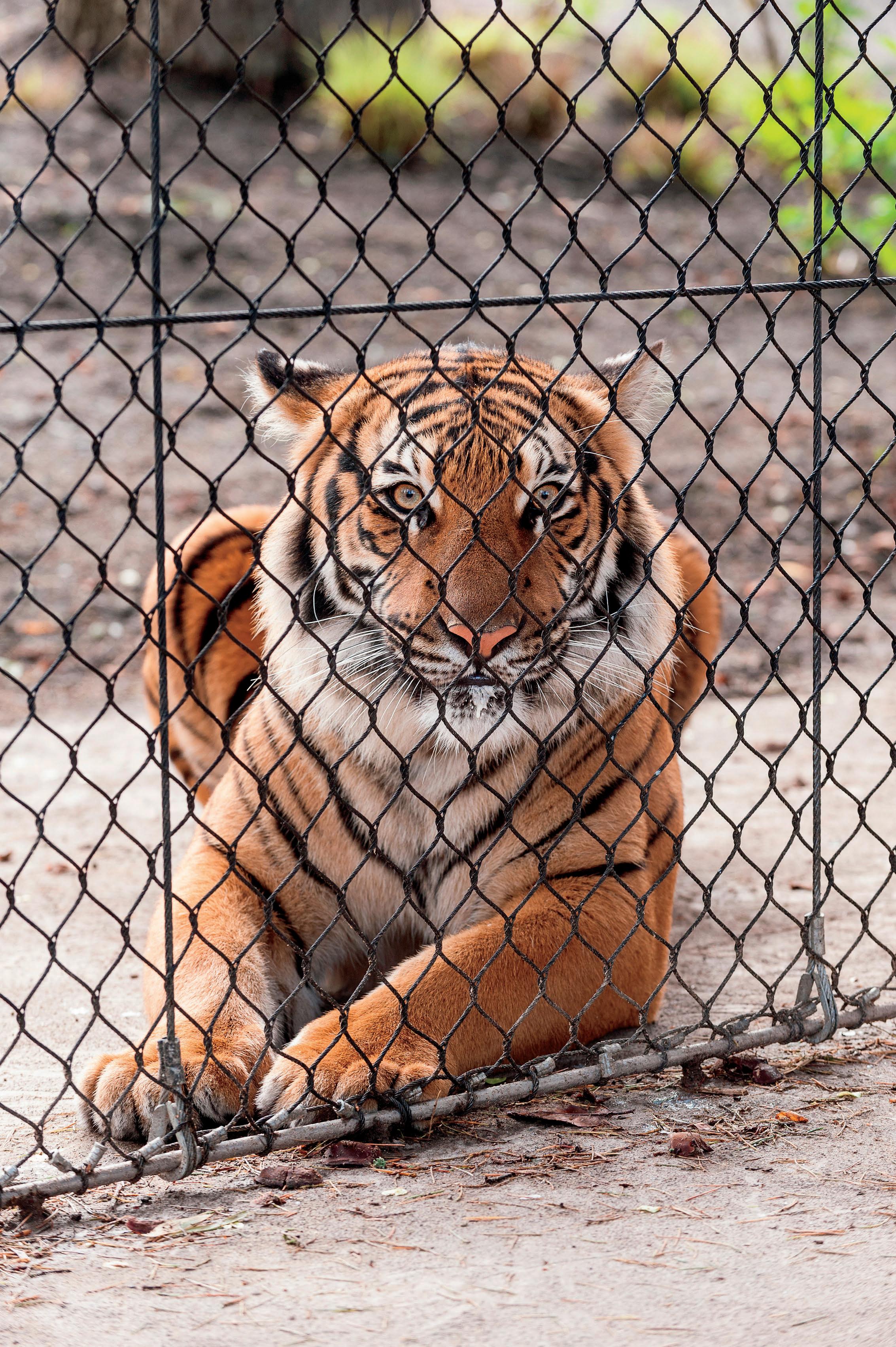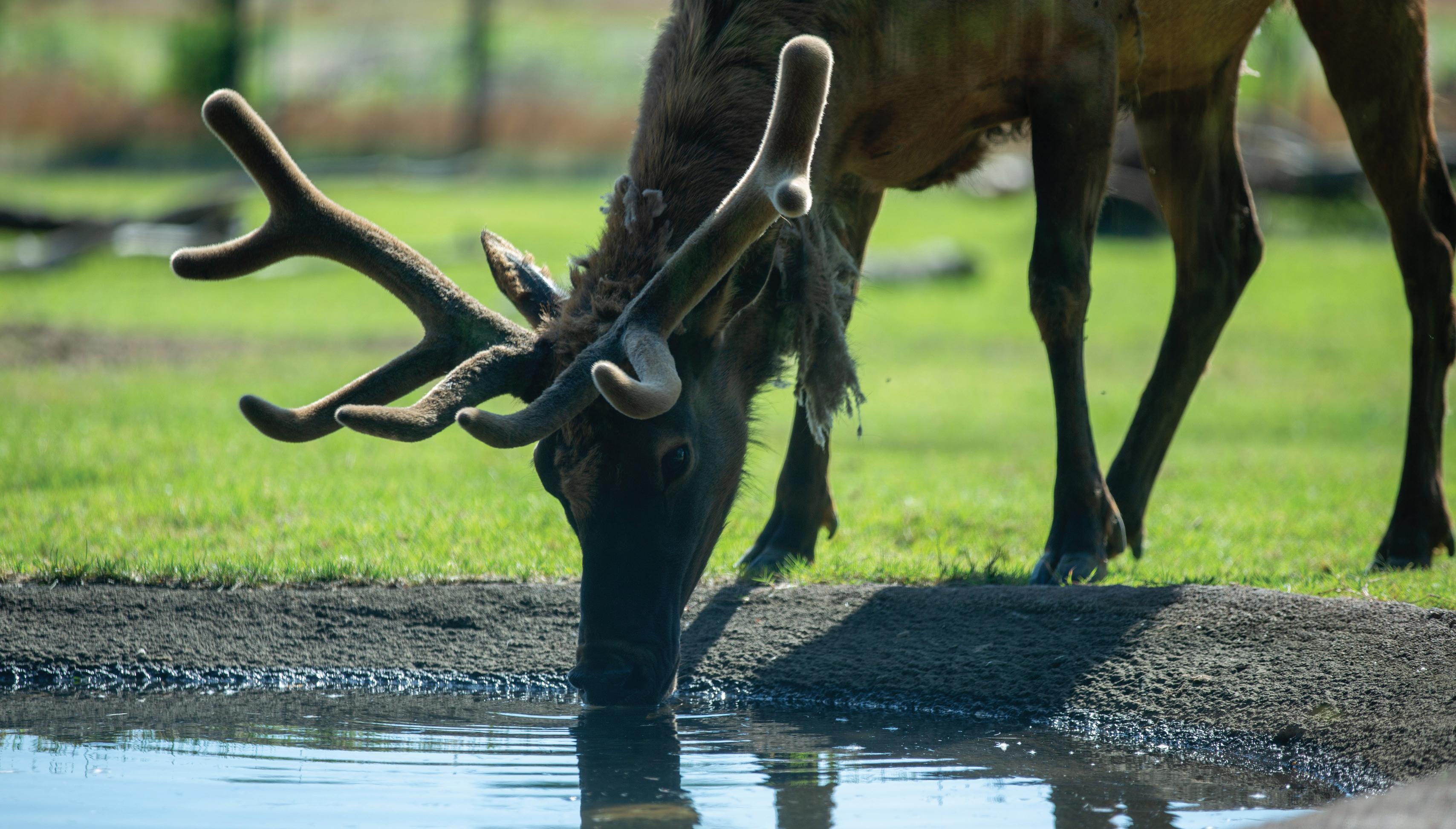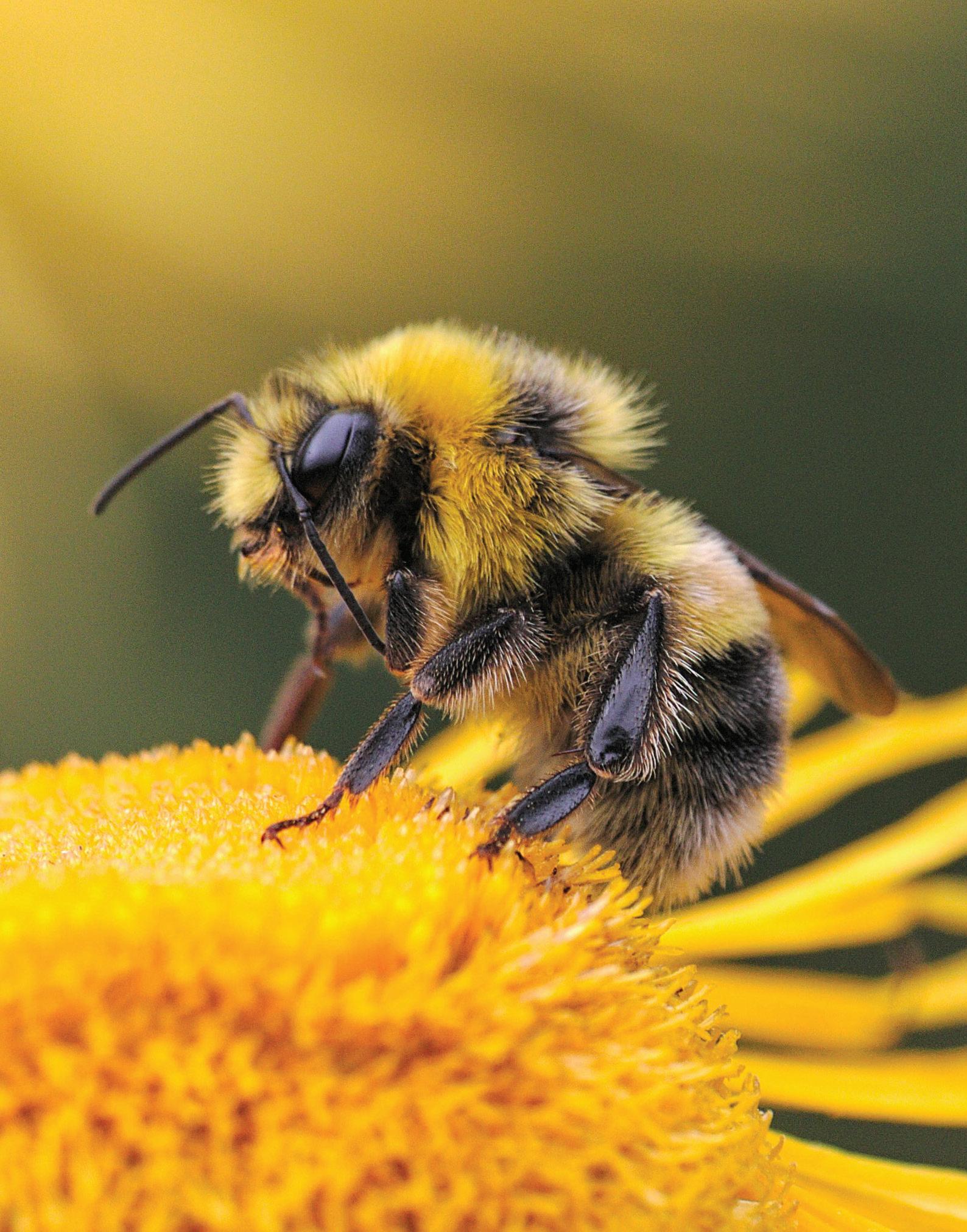




I’d bet that each of us wants to change the world for good, or at least make a difference in our little slice of the world. It’s funny, and almost ironic, that as our access to more information, stories, and ideas has grown, our ability to change the world has shrunk in a way. Our attention is drawn to the big and extraordinary things, the headlines of the moment. We are too easily distracted from the here and now, where our greatest opportunity to influence actually exists. At ECHO23, we engaged incredible thought partners from completely different sectors, but a single common thread emerged. They have transformed complex and deeply ingrained social systems, and it started with the things closest to home.
Mike Clifford GLMV Architecture, Zoos & Aquariums Division

It’s one of those quotes you have to read a few times but gets right to the heart of the matter. As we go about making change in this world, we carry with us all our passions and wisdom as well as our baggage and biases. If we carry with us fear, pessimism, or a sense of scarcity, our influence will reflect that to our teams and the communities we serve. If we carry with us hope and confidence, passion and abundance, our influence will be a snowball, gaining ideas, innovation, momentum, and possibilities as it rolls downhill.
What you’ll find in these pages are stories to be inspired by, questions to ask yourself, and insights that might change your perspective. You are an influencer. A change maker. A person willing to lead against the grain and do the hard work to make things better. I offer one single invitation: ruthlessly search for good and be curious about what you find.
In practice, set a 15-minute daily meeting on your calendar, go somewhere beautiful, and jot down your reflections on these questions:


1. What am I curious about today?
2. What is the most good I can discover within it?
I’m convinced your ability to influence impact will grow from a snowball to an avalanche if you cultivate curiosity and become the kind of person who discovers the good in each person and situation. It might just be the thing the world needs most.


And…it’s wicked fun to be curious.
 Mike Clifford
Mike Clifford
“How you do what you do is as important as what you do.” - Paul Hill
Recovering the Virtues of Curiosity, Freedom to Fail, and Divergent Thinking

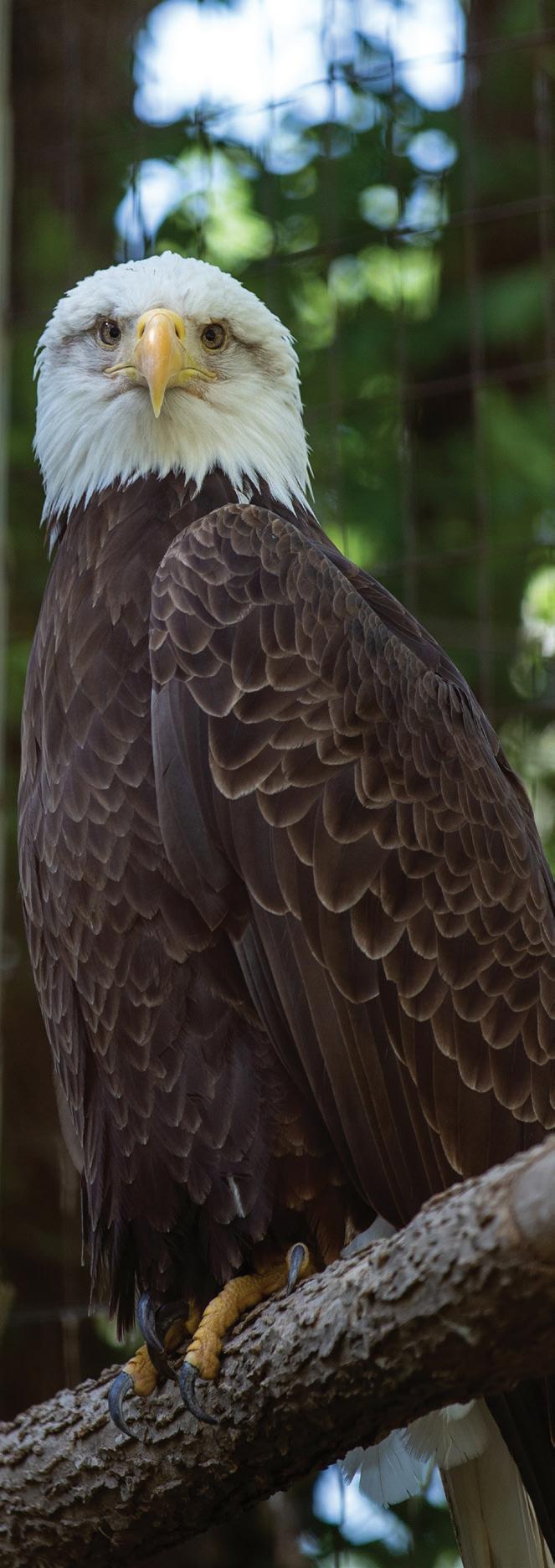

Dave Bindewald
Founder, Center for Play & Exploration


Counteracting Disinformation that Erodes Trust in Science
Diane Benscoter Founder, Antidote.ngo
Reclaiming Society’s Reductive Identities
Niya Pickett Miller, Ph.D. Assistant Professor of Communications Studies, Samford University
Julian Maha, M.D.
Founder, KultureCity
Justice For All: Bridging the Divide
Senator Doug Jones
Risky Business: Hard Choices and Difficult Decisions
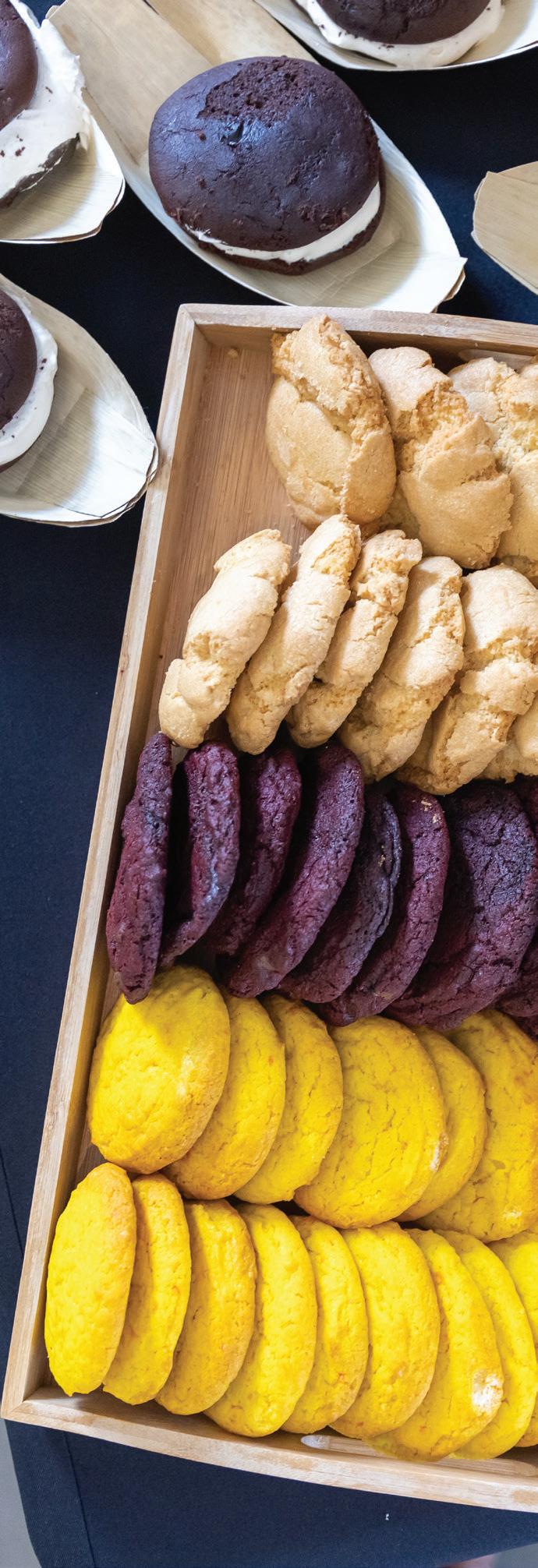
Libba Vaughan
Executive Director, Leadership Birmingham
Mark Wilson, M.D. Health Officer, Jefferson County Department of Health
Allison L. Dearing
Executive Director, One Place Family Justice Center
Graham C. Boettcher
The R. Hugh Daniel Director and CEO, Birmingham Museum of Art

For most of my life I considered the lottery to be a tax on people who are bad at math: to me, the longshot odds of winning just made it seem an irrational way to spend a dollar. Or two…or five…or….
But about ten years ago I came to appreciate the power of imagining what one might do with the money if the stars (and power balls) did happen to miraculously align. And that’s when I embraced “You can’t win if you don’t play”, while still understanding the odds. Just like “…being brave and afraid, at the exact same time” (Brene Brown), it’s a bit mind-bending but both can be true.
Dave Bindewald Founder, Center for Play & Exploration
Dave Bindewald, Director – Center for Play & Exploration, kicked off ECHO23 with a fabulously mind-bending talk demonstrating that play is important to winning much more than just the lottery. Dave described play as the “curious exploration of hidden potential” and skillfully led all the brains in the room through some calisthenics to reawaken our divergent thinking muscles. We are all born with this muscle, but fear of failure and shame can turn it off or shut it down, especially as we leave our years of childhood playfulness behind for the seriousness of adulthood. The good news is that just like any muscle, divergent thinking can be strengthened through exercise and practice. I especially liked the concept that you can get better at being creative by practicing being wrong, which helps to turn down shame.

It is important to invest in these mental workouts, and encourage them in our teams, because using divergent thinking to find unexpected solutions is the foundation of innovation, which is the foundation of success in these exceptionally challenging times.
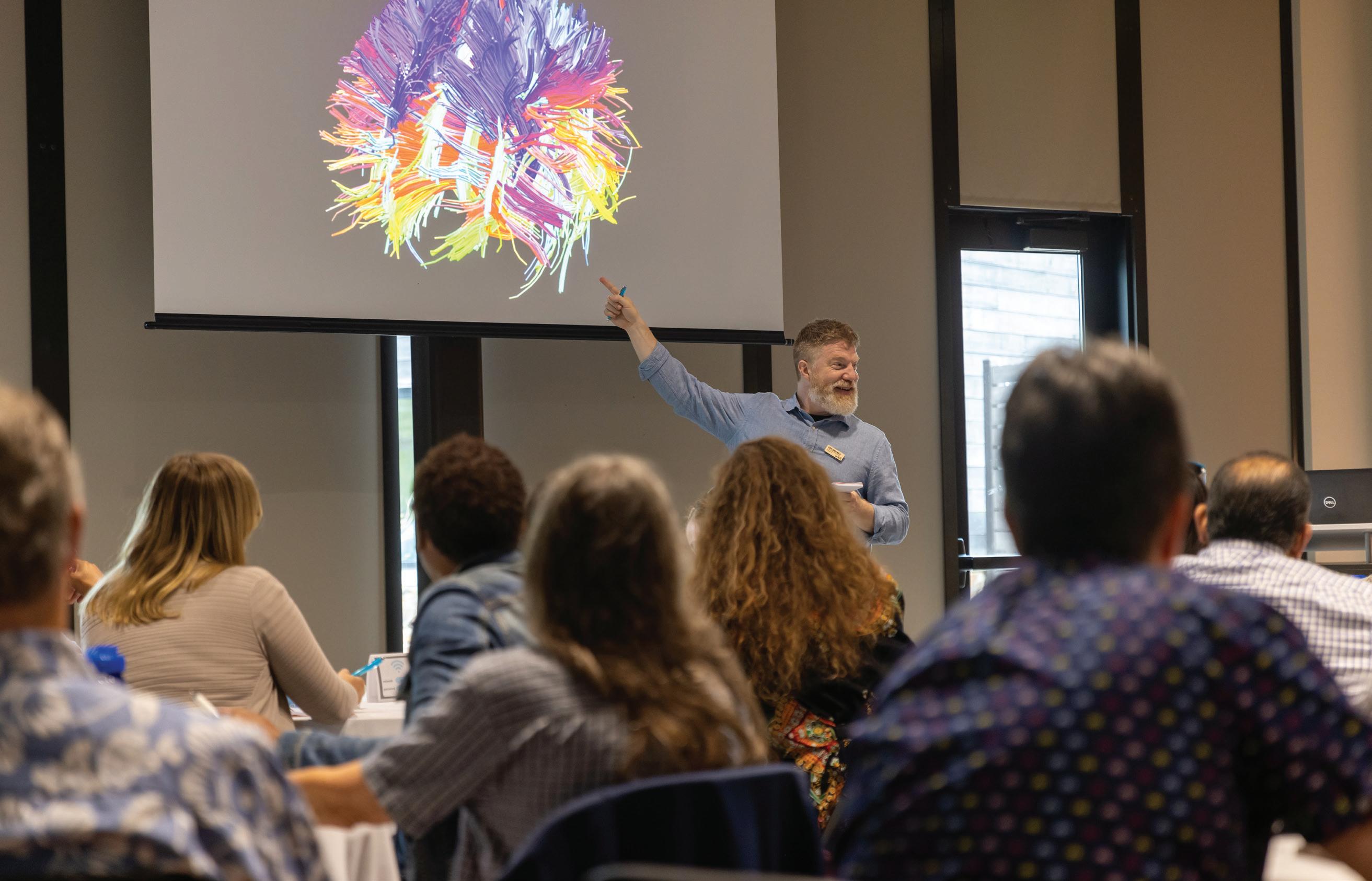
Here are a few of the simple exercises Dave provided for us to use on ourselves or with our teams:
1. Take five minutes to research something about which you are curious (e.g., What is the global distribution of marsupials?).
2. Write down the first ten things that come to mind.
3. Think of/write down all the possible uses of a paper clip (“Bionic pubic hair for Chat GPT” may, or may not, have been an actual idea during the conference exercise).
4. Choose a crazy word and invent potential definitions.
5. Pick a topic and then ask 100 questions relating to it.
Dave began by asserting that the truest thing about the world is its radical goodness. I’ve left it to the end here because I honestly didn’t agree with him at first. (I mean, there’s a reason I do not watch the news.) But he pointed out that curiosity mimics joy, then gave us ways/reasons to be curious (see exercises above). He also showed cute pictures
of tardigrades, which are so improbable and wonderful that you can’t help but feel full of awe, wonder, joy and … believe in goodness. Experiencing the transformation in my own state of mind and attitude during this session, and feeling the energy of the room elevate and lighten, illustrated the power of curiosity, joy, and creativity for me.
It turns out…
As social creatures we seek group belonging. Groups provide safety and comfort in a complex world. We often feel we choose the groups we belong to, but do we? ECHO23’s session “Counteracting Disinformation that Erodes Trust in Science” led by Diane Benscoter, founder of Antidote. ngo provided a heartfelt exploration of disinformation as the on-ramp to psychological manipulation. She highlighted the role disinformation and psychological manipulation play in our society, including the erosion of trust in science. Her easy-to-understand explanations with examples from her own experience as a cult member provided evidence that the level of psychological manipulation present today elevates it to a public health issue.
Disinformation was defined as: “Those with an agenda take advantage of others psychologically manipulating them for the manipulator’s benefits.” The play book of psychological manipulators is small but the advent of social media has increased their reach and power.
Thought Diane Benscoter Founder, Antidote.ngo1. Polarize “us” vs. “them.”
2. Create information silos.
3. Provide psychological benefits while building dependency.
You may be saying an explicative now. Facts don’t help those being psychologically manipulated.
Hidden agendas can be exposed by asking why or what questions five times, such as:
1. Why do you belong to this community?
2. What do you get from this community?
3. What does this community get from your participation and why?
 Written ByJo-Elle E. H. Mogerman Director, Saint Louis Zoo WildCare Park
Written ByJo-Elle E. H. Mogerman Director, Saint Louis Zoo WildCare Park

As a public health issue, Benscoter shared three approaches with examples to prevent and heal from psychological manipulation. The three approaches are legislation, direct interventions for those being manipulated, and education on the approaches and strategies to question intent.



What would it look like to position science as an approach to understanding complexity? Would that help with the safety and comfort we as social creatures seek in our complex world? By telling our stories in different ways, if facts don’t work, could we empower people to question five times to expose hidden agendas? Can we bust up the echoey information silos?
For me, this session reminded me of going off to college and my BFF’s Dad giving me a big hug and saying “Don’t get tricked.” He was a man of few words. I thought that those words were an odd choice at the time. However, I have encountered people and situations over my life where his voice came into my head. I listened.
PartnerMany of us can think of times we’ve felt out of place. Like we didn’t belong. Different. “Other.”
As parents of children born with perceived differences, Dr. Niya Pickett Miller’s son with albinism and Dr. Julian Maha’s son with autism, Dr. Pickett Miller and Dr. Maha were thrown into an inescapable world shaped by norms, labels, and categories. They witnessed society’s tendency to “other” people who deviate from societal schemas and scripts, contributing to exclusion, callousness, misconceptions, and the perpetuation of harmful stereotypes.


 Thought Partner -
Niya Pickett Miller, PH.D Assistant Professor of Communication Studies, Samford University
Thought Partner -
Niya Pickett Miller, PH.D Assistant Professor of Communication Studies, Samford University

This phenomenon is not new; history shows us many examples of people who were deemed different being paraded as spectacles for public amusement, akin to the circuses and zoos of the past. Differences were, and still are, explained through myth, lore, familial curses, superhuman abilities, and narratives of dejection, often reducing people to onedimensional characters in the collective consciousness.
Societal schemas and scripts are deeply entrenched in politics, religion, pop culture, and socioeconomic spheres, influencing how we perceive and interact with those who don’t conform to established norms. Dr. Pickett Miller suggests recognizing these ingrained scripts is the first step toward change. By challenging and consciously choosing not to perpetuate these narratives, we can disrupt the cycle of misinformation and prejudice and contribute to a growing culture of inclusivity and understanding. Some examples:
1. Don’t share memes, gifs, and stories on social media that “other” people.
2. Ask questions like “Where did you get that idea from?”.
3. Practice vulnerability; share your own story.
4. Create spaces where stories of individuals who have been “othered” are shared in a positive light.
Societal transformation will need both individual and systemic change. Propelled by their personal experiences, Dr. Pickett Miller and Dr. Maha understand that lasting change requires the revision of ingrained norms and dismantling structural barriers A now-familiar name in the zoological community, Dr. Maha founded KultureCity with a vision to “Make the Nevers Possible” and foster a community of inclusion and acceptance for those with sensory needs and invisible disabilities. Beginning close to home with the Birmingham Zoo as its first certified Sensory Inclusive organization, KultureCity has changed the global conversation around sensory needs. From stadiums to concert tours to cruise lines, over 550 venues are now certified as Sensory Inclusive, and first-responder certifications, training, and education campaigns promote empathy and understanding.
We are powerfully motivated by our personal experiences, and Dr. Maha and Dr. Pickett Miller remind us that, in the hands of passionate, clever, and courageous leaders, personal experiences can ignite systemic change. In this case, they inspire us to join them in cultivating a society where every individual is embraced for their unique contributions and where differences are celebrated rather than marginalized.
Written ByJen Charette Zoo Community Impact Manager, GLMV Architecture Thought PartnerJulian Maha, M.D. Founder, KultureCity
Thought PartnerJulian Maha, M.D. Founder, KultureCity
It feels good to share leadership success stories, but sometimes, acknowledging how incredibly hard leadership can be, both professionally and personally, is an opportunity for growth, healing, community, and strength. We were honored to have four inspirational leaders from Birmingham share very personal and heartfelt stories about making difficult decisions in service of their organization’s mission and leading through hard change. Each panelist invited us into meaningful, transparent, and vulnerable stories. As leaders, not every decision we make will be easy or popular, but to achieve great good, we must make tough decisions and stand in the gap on behalf of our teams and organizations.
To respect the confidentiality of our panelists’ stories, we won’t summarize what each shared, but instead a few key takeaways:
Few of us are founders of our organizations, which means we likely inherited the culture and decisions of our predecessors. If there are issues with programs or processes, they need to be questioned and evaluated, and evolve or be eliminated. Even in instances where donors or long-standing influencers are involved, initiatives that don’t advance the mission and vision of your organization need to be addressed. Some of our panelists faced major opposition, threats to pull funding, and even personal attacks, but change was necessary. In reflection, evidence shows their decisions were in the best interest of their organizations and the people they serve

We know input from within our organizations is essential, but trusted advisors from outside our organizations are equally important. When in the thick of a significant challenge, there can be high emotions, strong opinions, and immense pressure. When in that space, you need help. It’s good and ok to ask for it; we need outside perspectives and expertise. Some of our panelists made decisions that impacted hundreds of thousands of people and families. No one can or should make these types of decisions in isolation. It requires listening, curiosity, humility, and courage to build and listen to a network of advisors. As leaders, we need to actively create that community for ourselves.
We are all human. Sounds simple enough, but as leaders in the public eye, we feel pressure to be infallible. Some panelists shared how unkind some were to them following their decisions, issuing insults and even threats. Luckily, each had a foundation of family and close friends that provided personal support and encouragement. Unlike advisors, these networks understood the burden they carried, the toll it took, and were extraordinarily gracious with them. Leading can be lonely, and when we are out of the spotlight, we need to be accepted, cared for, seen, and loved. The more responsibility we take, the more we are convinced we can’t let hard things affect us. But they do. The strongest leaders have people they can lean into the discomfort and insecurities with and trust to be with them through it no matter what.



Every decision matters. They affect the lives of our staff, volunteers, guests, and ultimately the purpose of our organizations. Society has become more risk-averse, and every decision carries the potential for both good and bad outcomes. Uncertainty often leads to stalling and indecision, but we need courageous leaders willing to listen, analyze, decide, and take responsibility for whatever happens on the other side. Our panelists’ stories emphasized the importance of recognizing when a change needs to happen, even when it means letting things go, like people, programs, or key partnerships. But these decisions have consequences, and strong leaders take responsibility for what comes.
 Graham C. Boettcher, The R. Hugh Daniel Director and CEO, Birmingham Museum of Art
Graham C. Boettcher, The R. Hugh Daniel Director and CEO, Birmingham Museum of Art

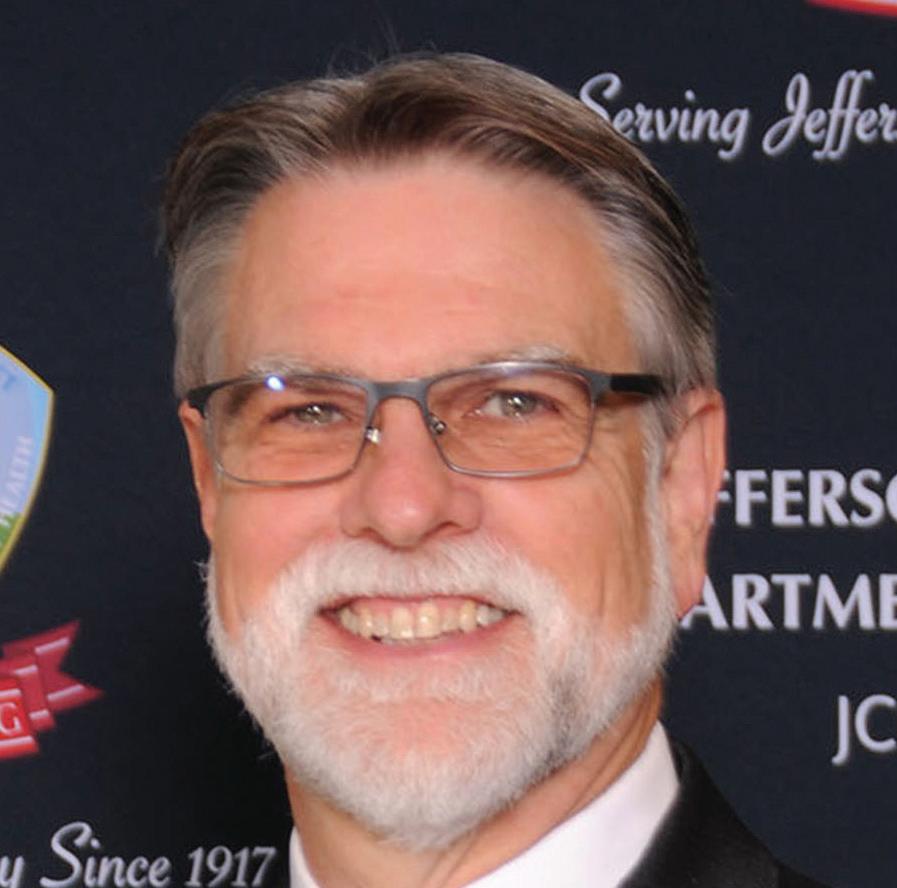 Written ByMike Clifford GLMV Architecture, Zoos & Aquariums Division
Written ByMike Clifford GLMV Architecture, Zoos & Aquariums Division
 Thought PartnerLibba Vaughan Executive Director, Leadership Birmingham
Thought PartnerMark Wilson, M.D, Health Officer, Jefferson County Department of Health
Thought PartnerLibba Vaughan Executive Director, Leadership Birmingham
Thought PartnerMark Wilson, M.D, Health Officer, Jefferson County Department of Health
ECHO HAS DEVELOPED A COHORT OF LIKE-MINDED PEOPLE WHO ARE OPEN TO QUESTIONING THE STATUS QUO, WHO ARE AWARE OF WHAT’S GOING ON IN THE WORLD, BUT WHO BELIEVE IN THE PURSUIT OF THE “GOOD.”
IT’S THE MOST UNIQUE CONFERENCE WE GO TO, IN TERMS OF MORE INTIMATE, IN-DEPTH CONVERSATIONS; AND TOPICS THAT ARE INTERESTING AND UNIQUE TO THE NORM.










During ECHO23, we were privileged to be joined by Senator Doug Jones, who provided an enlightening look into U.S. politics from the perspective of one who fought many uphill battles. A long-time advocate for zoos and aquariums, Senator Jones’ son even worked as an elephant zookeeper for several years, making the Senator an excellent speaker for the participants.

Senator Jones was a prosecutor in Alabama for many years, before surprising political leadership in the state, winning the 2017 special election for a congressional Senate seat in Alabama. With that win, he became the first Democrat in 25 years to serve as a senator of Alabama. He served for three years, passing more than two-dozen bipartisan bills into law. Service to the greater good and relationship building seemed to be the focal parts of Senator Jones’ philosophy, as he shared his career experiences with us. His career began in college, observing the men responsible for the 16th Street Baptist Church bombing on trial. This pivotal experience bookended poetically when, as U.S. Attorney, he was finally able to bring those men to justice - 40 years after they had murdered four young black girls in the bombing.
Written ByChris Corpus Director of Conservation, Dallas Zoo
Senator Jones said, reflecting on successes in his political career. Looming in the issues zoos and aquariums face are the opinions of powerful individuals and organizations who don’t believe our organizations matter or that they shouldn’t even exist at all. Similarly, Senator Jones faced Republican leaders who could not have been more diametrically opposed on the political spectrum. However, he shared a fascinating story of how he partnered with Republican Senator Ted Cruz to successfully pass a bill that no one else would touch previously.
A group of gold star widows had been trying for decades to get a bill created that would protect the income their spouses earned in warfare from being taxed at a 50% rate posthumously. Many senators had told the women they wanted to help, but needed to focus on “bigger issues.” Senator Jones, however, heard this story and was motivated to act. He knew that he would need bispartisan support to succeed. That support was found in Senator Cruz.
Senator Jones said. His ability to engage Senator Cruz was due to the clear and empathetic story that Senator Jones crafted about the gold star widows. The real impact came because of a clear ask connected with the story, enabling Senator Cruz to take action alongside Senator Jones.
Senator Jones’ struggles in the stories of his civic engagement work mirrored the struggles of conservation organizations like zoos and aquariums, though we don’t often recognize our work under a civic engagement umbrella. The idea of conservation as civic engagement seems novel, yet framing our work in that light could open doors to much more story and more impact.
For zoos and aquariums who serve communities that might not yet accept climate change science or might not recognize human health’s direct connection to nature, how can we follow the examples of civic
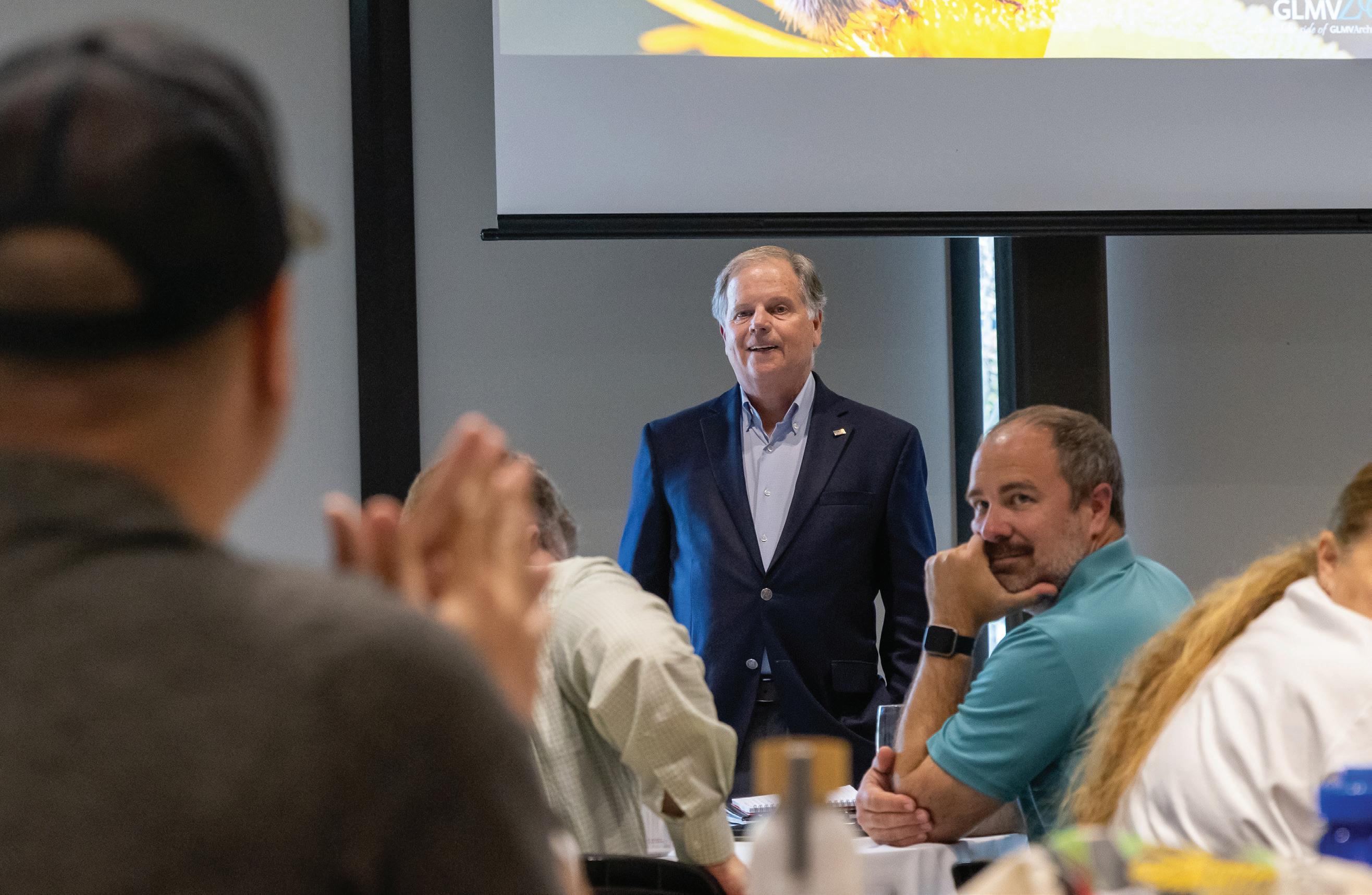
engagement success in our communities? Like the military widows or the families of the 16th Street Baptist Church bombing, change took decades to form. In both situations, Senator Jones found the right people to support the change, keeping them motivated by compelling stories with clear asks. From Senator Jones’ examples, the keys to our success will be relationship building via common ground, forming the right stories with connected asks, and recognizing that this work is a long game which may take decades – but oh the joy there will be when success is seen!
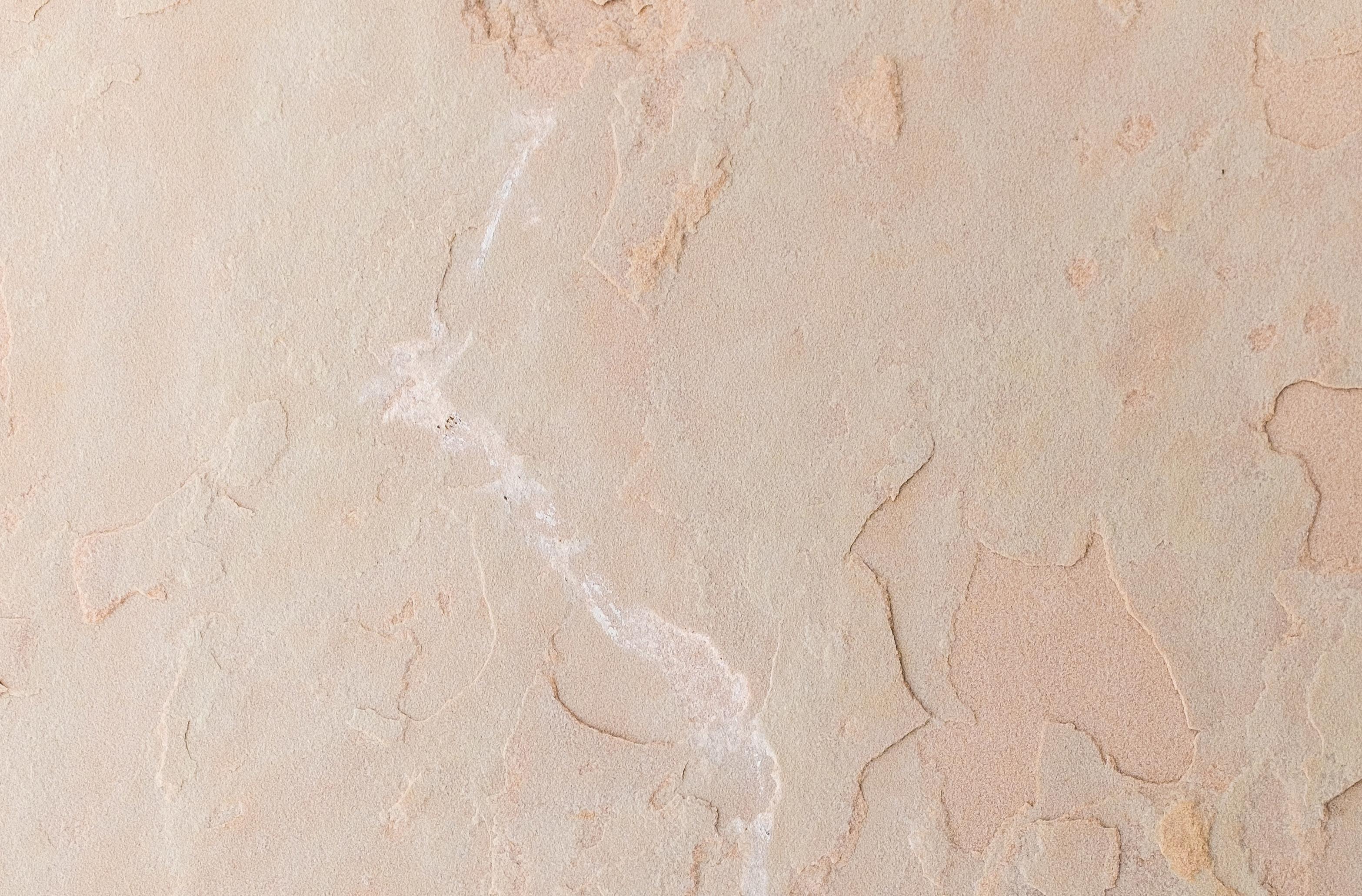
“Find the common ground,”
“Story moves people,”
We’d love to meet you on the forefront of immersive design, where we work tirelessly to enchance animal quality of life, staff engagement and fulfillment, and guest experience.


Our team knows that zoos are uniquely poised to promote conservation efforts and public interest in issues that may otherwise seem a world away.

In this division, projects are inspired by nature and designed by GLMV.


Architecture
Master Planning
Landscape Architecture
Interior Design
Land Use Studies
Needs Analysis
Cost Analysis & Estimating
Design Visualization
LEED Consulting and Implementation





ADA Compliance Studies




Conservation Impact Planning



Interpretive Planning
Animal Habitats & Exhibits
Aquariums
Animal Health Facilities
Conservation Learning & Environmental
Education Facilities
Entry Complexes
Administrative Facilities
Retail & Restaurants
Recreation & Amusement Planning
Nature Play
THIS IS SUCH A GREAT OPPORTUNITY TO CONNECT WITH OTHER LEADERS AND DISCUSS IDEAS AND CONCEPTS THAT CAN BE APPLIED TO THE ZOO FIELD. IT IS A PLACE WHERE PARADIGMS CAN SHIFT FOR THE BETTERMENT OF ZOOS , THEIR STANDARDS, PRACTICES, AND OPERATIONS.









ECHO IS FOR YOU IF YOU ARE PREPARED TO THINK HARD, CONTRIBUTE TO THE DISCUSSION, HAVE AN OPEN MIND TO CHANGE YOUR PERSPECTIVE (NO MATTER HOW OPEN YOU ALREADY ARE), AND ARE READY TO BE INSPIRED!
 THIS CONFERENCE WAS BY FAR MY FAVORITE CONFERENCE THAT I HAVE EVER ATTENDED. TRULY THOUGHT PROVOKING.
THIS CONFERENCE WAS BY FAR MY FAVORITE CONFERENCE THAT I HAVE EVER ATTENDED. TRULY THOUGHT PROVOKING.




FOR YOUR DEDICATION TO THE FUTURE OF ZOOS + AQUARIUMS AND WILDLIFE CONSERVATION























Thank you to our 2023 hosts, Birmingham Zoo! For your Southern hospitality, flexibility in the face of unrelenting rain, authenticity, incredible food, relational connections to Birmingham’s great leaders, and commitment to transforming the future of Zoos & Aquariums.

With special thanks to Chris Pfefferkorn, Hollie Colahan, Amy Rutherford, Jennie Whitman, Amanda Mitchell, Kallie Ricker, and the rest of the Birmingham Zoo’s passionate and talented team.
BIRMINGHAM ZOO DID AN INCREDIBLE JOB. GREAT ORGANIZATION, SPACE FOR MEETING AND MEALS AND FOOD.
THIS WAS AN AMAZING CONFERENCE, THANK YOU TO THE ENTIRE GLMV AND BIRMINGHAM TEAMS FOR ALL THE WORK THAT WENT INTO MAKING IT AMAZING.
ADVANCING THE GUEST EXPERIENCE, THROUGH ALL-IN SERVICES.

TOGETHER, THANK YOU TO OUR SPONSORS!
THESSAGROUP.COM





























